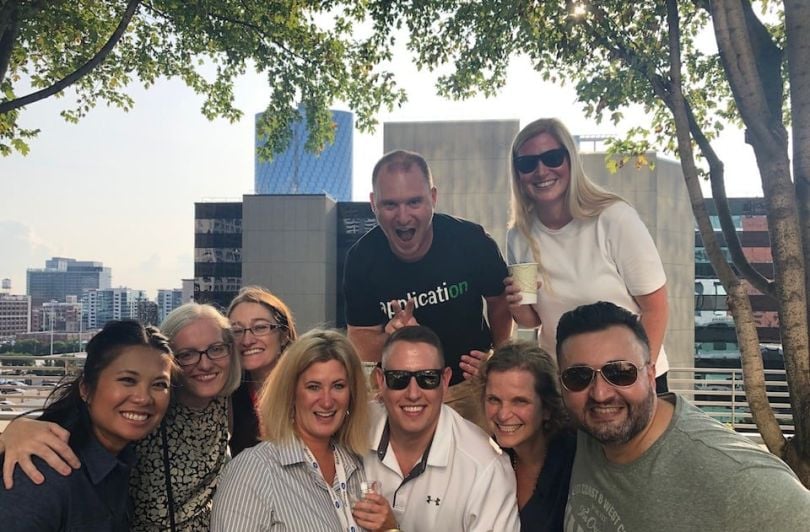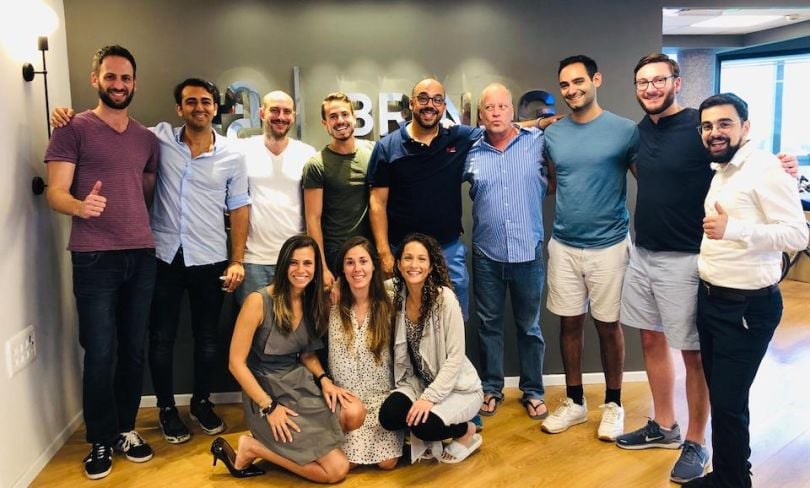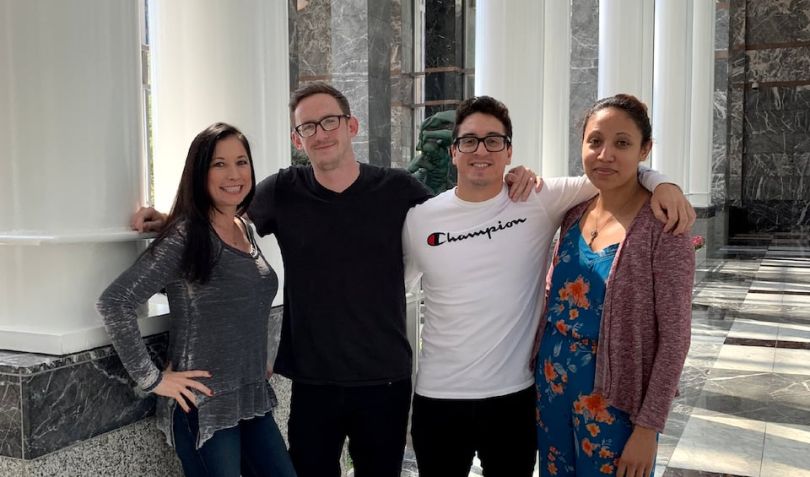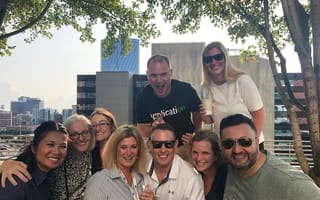Sometimes the most impressive ventures have humble beginnings. Many Chicago company founders can attest to this, and has a story or two about what inspired them to dive off the deep end into the electrifying world of tech entrepreneurship.
We were fortunate enough to hear from four of these busy founders, who shared their company origin stories with us in superhero movie-like fashion. Get your popcorn ready learn more about how these Chicago tech companies came to be.

Hometown loyalty can go a long way. CEO and Co-Founder of iManage Neil Araujo said his love of Chicago helped spur he and his co-founder to ground the company here rather than anywhere else. A few international offices and 600 employees later, the artificial intelligence company’s leaders are aiming to strengthen the city’s reputation for making great software.
What’s the story behind how and why your company was founded?
The origins of iManage point back to the computer science grad classes at the University of Illinois-Chicago. It was 1995 — my co-founder Rafiq Mohammadi and I loved the city and while many in our graduating class were moving east and west, our dream was to build a software company in our hometown. That meant creating opportunities to apply modern technologies to solve interesting business problems and to compete on the global stage. We felt that Chicago had the fundamental ingredients to be a tech hub and by building a successful tech company here, we could help prove to the world that Chicago could produce world class software companies.
While many in our graduating class were moving east and west, our dream was to build a software company in our hometown.”
How has the company evolved since those early days, and where do you see the company going next?
We went public four years after being founded, and eventually became a part of Hewlett-Packard. In 2015, we had a management buyout of the company from HP and became independent again, led by our founding executives. Starting out with about 150 employees in July of 2015, we have grown to over 600 people globally. I like to think of us having the culture of a startup but the stability and maturity of a larger company. Our industry is in the midst of a digital transformation and our clients are looking to us to help them apply modern technologies like cloud and AI to transform how they operate.

A conversation and some bad pizza — that’s what led to the creation of a company that eventually expanded across multiple continents and doesn’t deliver pizza. As told by Bringg’s Co-founder and Chief Technology Officer Lior Sion, the logistics company was born out of frustration with the lack of insight into the movement of goods.
What’s the story behind how and why your company was founded?
I was the CTO of an Uber-competitor called GetTaxi back in the days when Uber was just a startup and you could order a taxi by phone and track it on your screen. I met an old friend who didn’t understand why that technology was limited to the taxi industry. Every time he ordered pizza for his family, the bad service made every order a chaotic event in his house. We didn’t understand why other industries couldn’t offer the speed and convenience that transportation startups were bringing to the table. That’s where the idea for Bringg was born.
We didn’t understand why other industries couldn’t offer the speed and convenience that transportation startups were bringing to the table.”
How has the company evolved since those early days, and where do you see the company going next?
We started six years ago as a small operation with five people. As we expanded and our technology grew, we’ve turned into a 140-person company active in 50 countries, with teams spread across the U.S., U.K, Israel and even Australia. We went from offering a few point solutions for small and midsize businesses to developing a delivery orchestration platform that automates and digitizes every step of the delivery flow for large enterprises. As time goes on, we expect data and AI to play even greater roles in our platform.

When you’re intimately familiar with how a watch works, you’ll probably know how to fix it when an issue arises. BigTime Software’s Founder and CEO Brian Saunders isn’t a watch repairman, but he knows all about how consultancies work and the issues they experience. That’s why he started BigTime to fix some of the issues in that industry.
What’s the story behind how and why your company was founded?
Before BigTime, I ran a consulting shop. I was just like most of our customers: a great consultant, but with no expertise in the metrics and mechanics behind successful professional services firms. Running a successful firm can be complex and my partner and I had to learn every lesson through experience. I started BigTime in 2001 after selling that first firm so that other leaders wouldn’t have to face that same uphill battle alone.
We’ve built a customer base of thousands over the course of more than a decade. Respecting what our professional services customers are struggling to build is important. It’s baked into our firm’s DNA and our core values. And that didn’t come from some whiteboard in a long-lost garage — it came from my experience with that daily struggle.
Most of the “aha” moments are followed by long hours of work in turning a cool idea into actual results.”
How has the company evolved since those early days, and where do you see the company going next?
BigTime recently closed a growth round, so we’re in the midst of a significant expansion in Chicago. We are busy hiring folks who are entrepreneurs at heart — people who can see every challenge as an opportunity.
And our team gets to learn from watching our customers every day. They get to see first-hand that entrepreneurial success isn’t very glamorous. It’s gritty, takes hard work, and most of the “aha” moments are followed by long hours of work turning a cool idea into actual results. I’m confident our growing team will be up for the challenge. BigTime has thousands of great role models to show us how it’s done.






